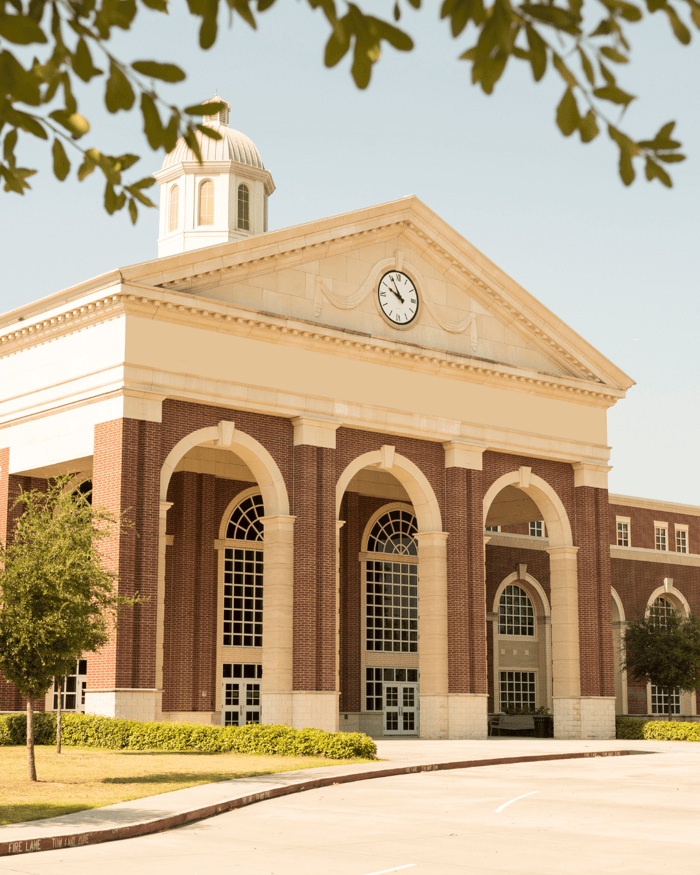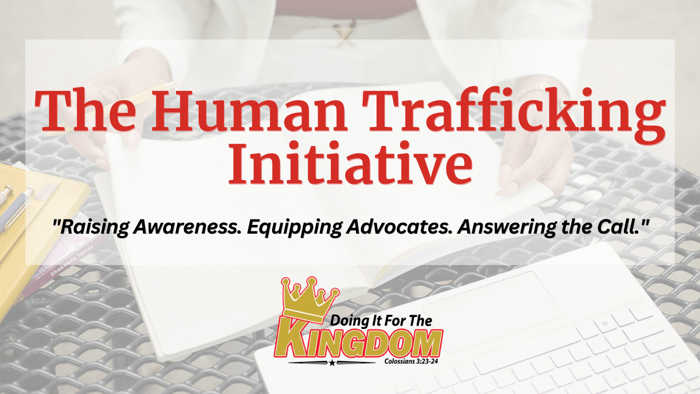Table of Contents
The Austin Peay State University Human Trafficking Sting: When Coaches Cross the Line
The Austin Peay State University Human Trafficking Sting: When Coaches Cross the Line
 When we send our children to college, we expect their mentors—professors, advisors, coaches—to help shape them into responsible, empowered adults. But what happens when the people entrusted with that responsibility abuse their position and get involved in the dangers we warn our children about?
When we send our children to college, we expect their mentors—professors, advisors, coaches—to help shape them into responsible, empowered adults. But what happens when the people entrusted with that responsibility abuse their position and get involved in the dangers we warn our children about?
That’s precisely what unfolded in 2024 when a college football coach from Austin Peay State University in Tennessee was caught in a human trafficking sting operation. The story shocked the campus and the wider community, proving that traffickers aren’t just strangers in alleyways—they can wear whistles, title badges, and university polos.
When Coaches Cross the Line: The Austin Peay State University Human Trafficking Sting
In August 2024, the world of college athletics was rocked when Patrick Kugler, the Co-Offensive Coordinator and tight ends coach for Austin Peay State University (APSU), was arrested during a multi-agency human trafficking sting in Clarksville, Tennessee. For students, parents, and university officials, it served as a terrifying reminder that traffickers are not always strangers in alleyways—they can be trusted figures on our campuses.
This case is part of a broader trend where educators, coaches, and mentors have been caught engaging in or attempting to engage in sexual exploitation and trafficking-related behavior. The arrest of a respected football coach at a Division I university challenged assumptions and exposed dangerous gaps in institutional oversight and public awareness.
The Operation: What Happened? The Austin Peay State University
From August 14–16, 2024, the Tennessee Bureau of Investigation (TBI) conducted an undercover operation in Montgomery County as part of the ongoing “Operation Someone Like Me.” The purpose of the operation was to target individuals attempting to engage in commercial sex acts with minors.
Working with the Clarksville Police Department, Homeland Security Investigations, and the Office of the 19th Judicial District Attorney General, law enforcement officials posed as minors and/or facilitators on online platforms known for sex solicitation.
One of the individuals who responded to the ads and showed up for a meetup was Patrick Kugler.
According to the TBI's official statement (TBI newsroom), Kugler was arrested on August 16, 2024, and charged with one count of trafficking for a commercial sex act under Tennessee law. He was released on a $5,000 bond.
“We want to emphasize that trafficking begins with demand,” said TBI Director David Rausch. “If you attempt to purchase sex, especially from a child, you are participating in the crime of trafficking.”
The University’s Response: Austin Peay State University
Kugler resigned from his coaching position on August 13, 2024, just days before the sting became public knowledge. In a statement issued on August 22, 2024, APSU confirmed his resignation and acknowledged his arrest but declined to comment further, citing an ongoing investigation.
According to reports from WSMV News, the university did not disclose whether it had prior knowledge of the pending investigation at the time of his resignation.
The All-State student newspaper reported that multiple APSU students were shocked and disturbed by the news. Some expressed concern over how easily someone in a position of trust and visibility could be involved in such a heinous crime.
Demand-Side Trafficking: Why It Matters
When we think of human trafficking, most people imagine victims being kidnapped or sold into slavery. But the demand side—those who attempt to purchase sex, especially from minors—is a major driver of the trafficking economy.
In Tennessee and across the U.S., sting operations like these aim to disrupt the demand by catching predators before a real victim is harmed. While no minors were directly involved in Kugler’s arrest (as it was an undercover operation), his intent and actions placed him squarely within the legal definition of attempted trafficking.
Under Tennessee Code § 39-13-309, it is illegal to attempt or engage in trafficking for a commercial sex act, even if the intended victim is a decoy or undercover agent.
Coaching, Power, and Responsibility
College coaches hold a unique place of influence. They often mentor, role model, and serve as a father figure to the young athletes they train. When one of them abuses that power outside the campus context, it undermines trust and safety.
This case raises serious questions:
What vetting systems were in place at APSU before hiring staff?
Are coaches and staff being trained to recognize and prevent trafficking?
How can universities ensure that individuals with access to vulnerable populations are held to the highest standards?
Spiritual and Ethical Insights
From a biblical and ethical lens, this case brings several powerful truths to light:
1. Predators Are Not Always Who We Expect
People may appear moral, professional, or even inspiring on the outside. Still, the Word reminds us to test the spirit behind every action (1 John 4:1). Just because someone holds a leadership title doesn't mean they walk in integrity.
2. The Root of Exploitation is Sin
The act of attempting to purchase sex, especially from a minor, is more than a criminal offense—it's a reflection of deep spiritual brokenness. It is fueled by lust, entitlement, and selfish desire. Healing and justice must be applied not only socially but also spiritually.
3. Justice Must Be Public and Firm
Scripture emphasizes the importance of justice in leadership:
“Woe to those who make unjust laws… who withhold justice from the oppressed.” —Isaiah 10:12
When those in power commit acts of injustice, we must respond boldly, with accountability and education.
What Universities Must Learn
In light of this and similar cases, universities should consider the following steps:
✅ Run regular background checks on all athletic and student-facing staff.
✅ Provide mandatory training on sexual misconduct, trafficking, and healthy boundaries.
✅ Partner with trafficking awareness nonprofits to offer campus-wide prevention initiatives.
✅ Encourage anonymous reporting and support systems for students and staff who see or experience inappropriate behavior.
✅ Include trafficking education in student orientation and athletic program onboarding.
Conclusion
The arrest of Patrick Kugler wasn’t just about one man—it was about the systemic risks that arise when institutions fail to adequately prepare for, identify, and respond to trafficking behavior.
The hard truth is this: traffickers don’t always come with warning signs. Sometimes, they wear a whistle and coach your child’s team.
As educators, believers, and leaders, we must guard our gates—and train others to do the same.
Let’s not wait for another sting to reveal what was already happening behind closed doors.
📣 Call to Action (CTA)
🎯 It’s Time to Hold the Line—On and Off the Field
The cost can be devastating when college leaders fail to fulfill their responsibilities. Human trafficking doesn’t just happen “out there”—it happens in locker rooms, office spaces, and inboxes.
✝️ Want a faith-based perspective on this topic?
Read God’s Call to Justice: The Spiritual Battle Against Human Trafficking to understand how biblical justice, wisdom, and advocacy unite to fight exploitation at every level.
Let’s make sure the people leading students aren’t the ones endangering them.
FAQs
1. Was the coach actually trafficking someone at the time of arrest?
No. Patrick Kugler was arrested during a sting operation where undercover agents posed as minors or traffickers online. Though no real minor was involved, his intent to purchase sex from a minor is considered a serious criminal offense and meets the legal definition of attempted trafficking under Tennessee law.
2. What is “demand-side trafficking”?
Demand-side trafficking refers to individuals who seek to buy sex, especially from minors. This demand fuels the entire trafficking industry. Without buyers, traffickers would have no market. Law enforcement increasingly targets these buyers through sting operations to disrupt the cycle of exploitation.
3. How can universities prevent staff from becoming involved in trafficking crimes?
Colleges can:
Conduct annual background checks on all staff.
Require mandatory trafficking prevention and boundaries training.
Establish clear reporting policies for students and staff.
Monitor campus culture, especially in athletics and residential life, for signs of inappropriate relationships or abuse of power.
4. Are trafficking stings like this common?
Yes. Across the U.S., law enforcement agencies conduct regular stings to identify traffickers and buyers. Tennessee, in particular, has run several operations like “Someone Like Me”, which has resulted in dozens of arrests in recent years, many involving educators, coaches, and other authority figures.
5. What should I do if I suspect a coach or school official is involved in exploitation?
If you suspect someone is engaging in trafficking or grooming behavior, report it immediately to:
Campus security or Title IX coordinator
Local law enforcement
The National Human Trafficking Hotline: 1-888-373-7888 or text “HELP” to 233733
If a minor is involved, report to Child Protective Services as well. Don’t ignore your gut—your vigilance could save a life.


